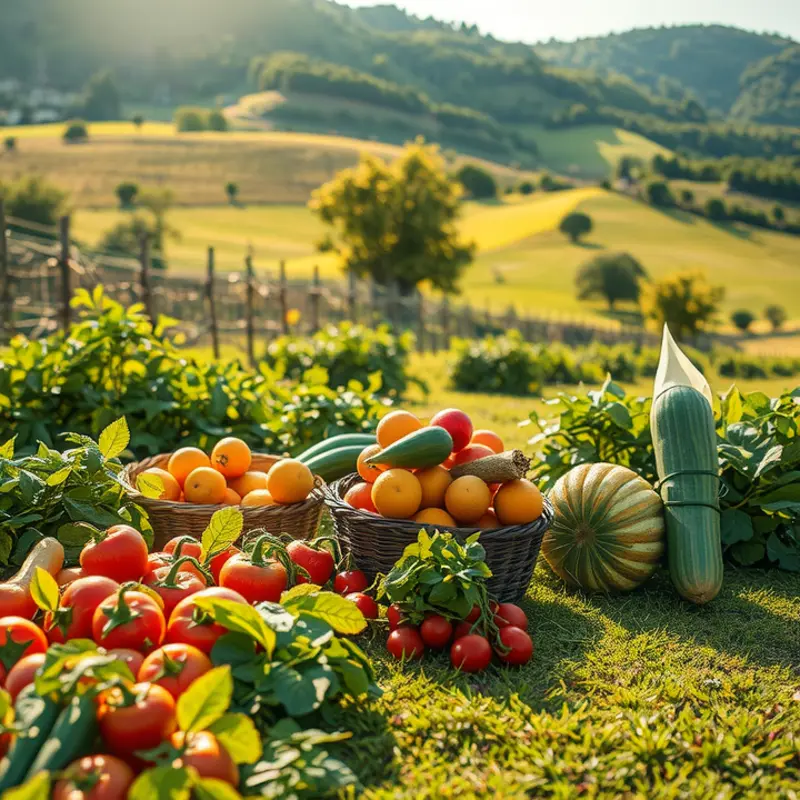As the world grapples with climate change and environmental degradation, food choices play a crucial role in sustainability. By exploring eco-conscious protein swaps, individuals can reduce their carbon footprint while maintaining a nutritious diet. This journey isn’t just about cutting out meat but embracing alternatives that nourish our bodies, support local economies, and protect our planet. Here, we delve into various eco-friendly protein sources to help transform your meals into sustainable feasts.
Plant-Based Power: Engaging Alternatives

Transitioning from traditional animal proteins to plant-based options offers numerous benefits both for your health and the planet. Plant-based proteins such as legumes, tofu, tempeh, and seitan not only provide essential nutrients but also have a significantly lower environmental impact.
Legumes, including beans, lentils, and peas, are rich in protein, fiber, vitamins, and minerals. They serve as excellent meat substitutes due to their high protein content. Moreover, legumes are low in fat and have cholesterol-lowering properties. Integrating them into meals is simple: add lentils to soups, include beans in chili, or try a chickpea salad for a protein-packed lunch.
Tofu, derived from soybeans, is another versatile protein source. It’s packed with calcium and iron and is one of the few plant-based sources containing all essential amino acids. Tofu’s mild flavor allows it to absorb the spices and sauces it’s cooked with, making it an adaptable ingredient in numerous dishes. Grilled, stir-fried, or blended into smoothies, tofu is a seamless addition to any diet.
Tempeh, like tofu, is made from soybeans, but it is fermented, offering distinct health benefits. The fermentation process enhances tempeh’s nutritional profile by making it easier to digest and increasing its probiotic content. Its firm texture makes it an excellent addition to stir-fries, sandwiches, or as a bacon alternative on a breakfast plate.
Seitan is a protein powerhouse made from wheat gluten and is often used as a substitute for chicken or beef due to its texture. Although it lacks some essential amino acids, it is still a valuable protein source when paired with other plant-based foods. Seitan easily absorbs flavors and can be used in a variety of culinary techniques, from sautéing to grilling.
Adopting plant-based proteins not only enhances dietary diversity but also significantly reduces one’s carbon footprint. Animal agriculture contributes extensively to greenhouse gas emissions, deforestation, and water use. By shifting to plant-based options, individuals can enjoy nutritious meals while supporting a more sustainable environment.
For those interested in practical ways to incorporate plant-based proteins, check out this guide on easy plant-based eating. With these tips, adopting plant-based meals becomes straightforward, ensuring you get all the nutrients you need without compromising taste or satisfaction. Embedding these powerful alternatives into your daily diet paves the way for a healthier lifestyle and a greener planet.
Innovations in Eco-Friendly Protein Sources

Exploring alternative protein sources offers exciting possibilities for both nutritional benefits and environmental impact reductions. Lab-grown meats are one of the most intriguing innovations. Unlike conventional meat, lab-grown options require significantly fewer resources, leading to lower greenhouse gas emissions. They are cultivated from animal cells in controlled environments without the need for traditional livestock farming. This method conserves land and water, reducing strain on natural resources. Concerns about antibiotics and hormones prevalent in traditional meat production are also minimized, offering a cleaner protein alternative.
Another sustainable choice is the integration of edible insects into our diets. Recognized for their high protein content, crickets, mealworms, and other insects provide essential amino acids and micronutrients like copper, iron, and selenium. Insect farming is incredibly efficient, requiring minimal land and water while producing a fraction of the greenhouse gases compared to livestock. Incorporating insects into your diet can be as simple as using cricket flour in baking or adding roasted mealworms to salads, providing a versatile and eco-friendly protein source.
Algae, especially microalgae like spirulina and chlorella, hold promise as potent protein alternatives. Algae grow quickly, require little space, and are capable of thriving on non-arable land and saline water, making them a sustainable crop. Rich in protein, omega-3 fatty acids, and vitamins, algae can complement various dishes from smoothies to soups. Their capacity to absorb carbon dioxide also makes them an excellent choice for reducing atmospheric CO2 levels, thus helping combat climate change.
Integrating these alternative proteins into everyday meals can significantly contribute to a more sustainable diet. For those adapting their culinary habits, resources like practical ingredient batching can facilitate meal prep with new ingredients such as algae powders or insect-based flours. Utilizing batch cooking techniques ensures efficient use of these novel ingredients, aligning meal prep with sustainability goals.
Adopting these eco-friendly protein alternatives does not mean compromising on flavor or nutrition. Experimenting with lab-grown meats, edible insects, and algae can lead to innovative dishes that support both personal health and the planet’s well-being. Embracing these sources can pave the way for a greener, more sustainable eating culture.
Final words
Adopting eco-conscious protein swaps not only fosters a healthier planet but also enhances your nutritional intake. By embracing plant-based proteins and innovative alternatives, you can reduce your carbon footprint while enjoying delicious meals. Every small change counts; even swapping one meal per week can make a significant impact. These eco-friendly choices support sustainable farming practices, help conserve water, and mitigate greenhouse gas emissions. Start today by exploring the rich variety of protein options available, and share your journey with those around you. Together, we can nourish ourselves and the Earth.








